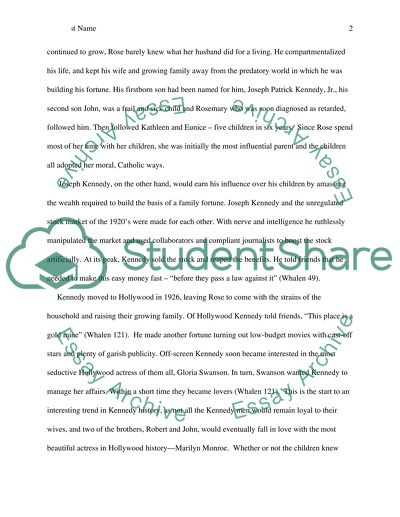Cite this document
(“The Legacy of Joe and Rose Kennedy Essay Example | Topics and Well Written Essays - 4000 words”, n.d.)
The Legacy of Joe and Rose Kennedy Essay Example | Topics and Well Written Essays - 4000 words. Retrieved from https://studentshare.org/history/1510611-the-legacy-of-joe-and-rose-kennedy
The Legacy of Joe and Rose Kennedy Essay Example | Topics and Well Written Essays - 4000 words. Retrieved from https://studentshare.org/history/1510611-the-legacy-of-joe-and-rose-kennedy
(The Legacy of Joe and Rose Kennedy Essay Example | Topics and Well Written Essays - 4000 Words)
The Legacy of Joe and Rose Kennedy Essay Example | Topics and Well Written Essays - 4000 Words. https://studentshare.org/history/1510611-the-legacy-of-joe-and-rose-kennedy.
The Legacy of Joe and Rose Kennedy Essay Example | Topics and Well Written Essays - 4000 Words. https://studentshare.org/history/1510611-the-legacy-of-joe-and-rose-kennedy.
“The Legacy of Joe and Rose Kennedy Essay Example | Topics and Well Written Essays - 4000 Words”, n.d. https://studentshare.org/history/1510611-the-legacy-of-joe-and-rose-kennedy.


